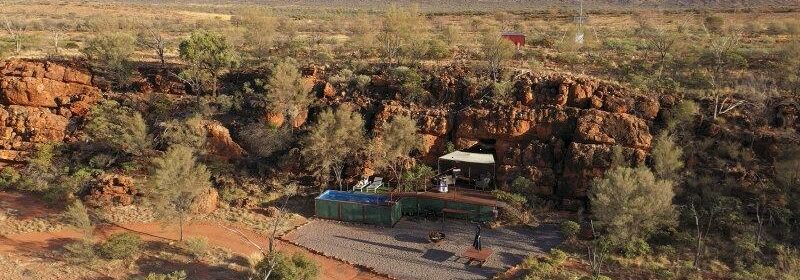Travelling across our wide brown land inspires thinking beyond the everyday

One of my favourite pastimes is to travel into the Australian bush and Outback.
Each spring, a group of four or five of us – men who have been friends for more than 30 years – select a destination and set off with our camping equipment and enthusiasm to explore a part of this huge country.
An Outback camping spot.
We have visited the Flinders Ranges and Birdsville, driven the Old Ghan railway line to Alice Springs, the Strzelecki and Tanami tracks as well as Victoria’s high country. Earlier this year we travelled to Lake Mungo.
Each trip provides us with a time for some “male bonding” and engaging not just in the issues of the day. Equally important it also gives us time to consider the meaning of life, and the existence of God and good and evil, as well as our own challenges, hopes and disappointments.
I value these times together, as I am sure the others do. The conversations occur while travelling in our four-wheel-drives as well as over dinner, and often late into the evening over a good bottle of wine.
While we do not agree on everything, we each know how fortunate we are to live in Australia and value our freedom, families and communities of which we are part. Travel in the Outback has opened our eyes to the many challenges faced by our Indigenous people, and their resilience in caring for the environment.
There is one perennial discussion, and it is often directed to me: Why do I believe in God? My fellow travellers have each been brought up in a Christian tradition. One, like me, trained for ministry in the Church. But I am the only one who continues to practice my faith, while most have completely abandoned any semblance of belief, although we all espouse the values of compassion, justice, restoration and sharing resources.
A common complaint is that many Christians are hypocrites who say one thing and do another. Another is that much Christian teaching relates to the power of churches to protect their privilege and ignore their failures.
Each time I reflect on these issues I find myself agreeing with many aspects of their objections. For me, however, the centrality of my faith is not the institution – as all fall short of their hopes and aspirations – but of the narrative of a God who has created out of love this planet and the universe in which we share.
This God embraces mystery, awe and transcendence. The gift of life is the greatest gift we all share, and the God I know has entrusted the universe with abundance and beauty not to exploit but to steward.
During the pandemic, people of faith have been called to stand alongside all who need our support and encouragement, and to share with other viewpoints and faiths the possibilities of a shared vision.
For Christians this is the dream of God’s creation, to build a just and compassionate community for all in accordance with the teachings of Jesus as a sign of this hope.
Most Viewed in National
From our partners
Source: Read Full Article
